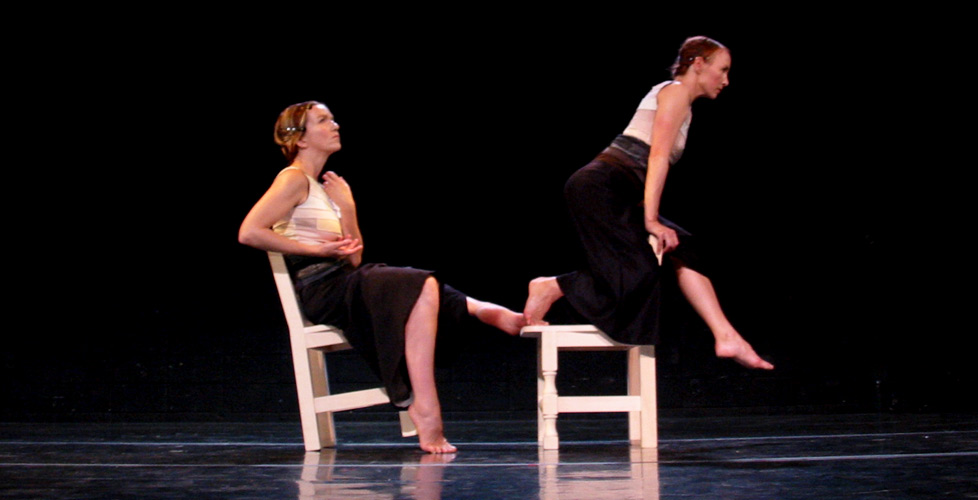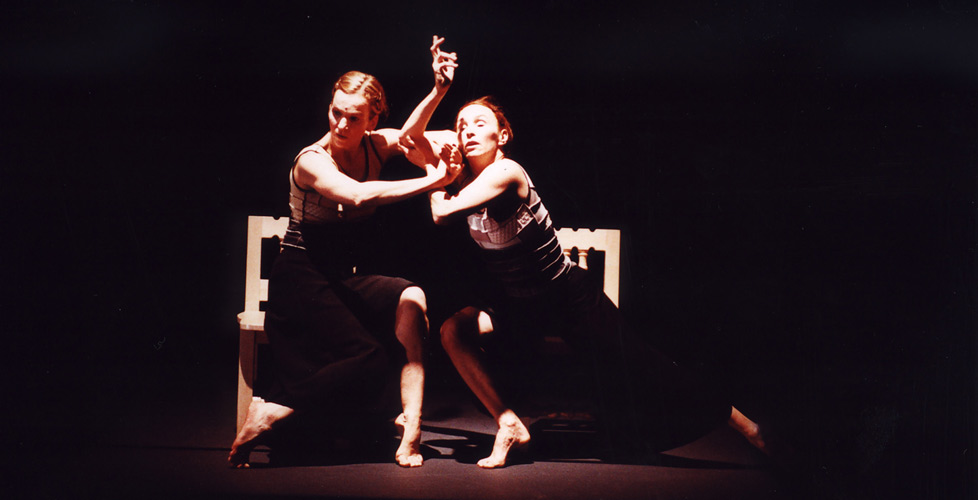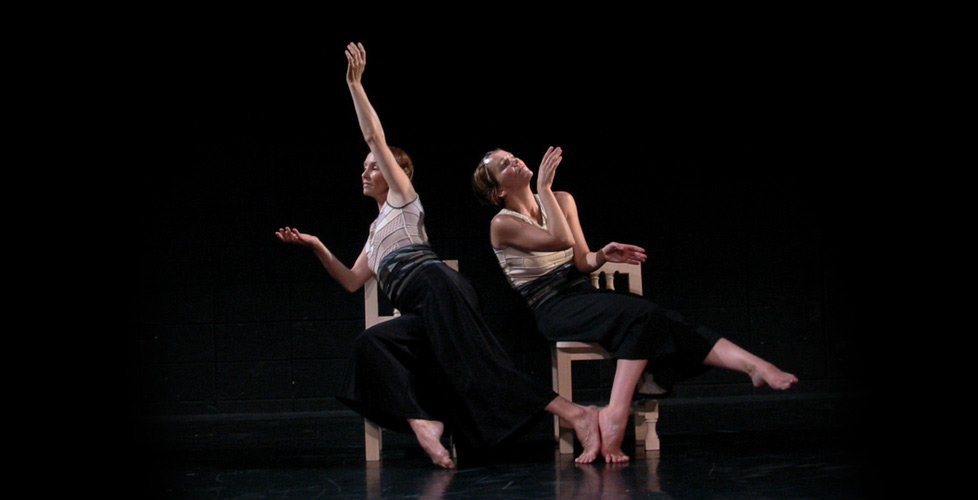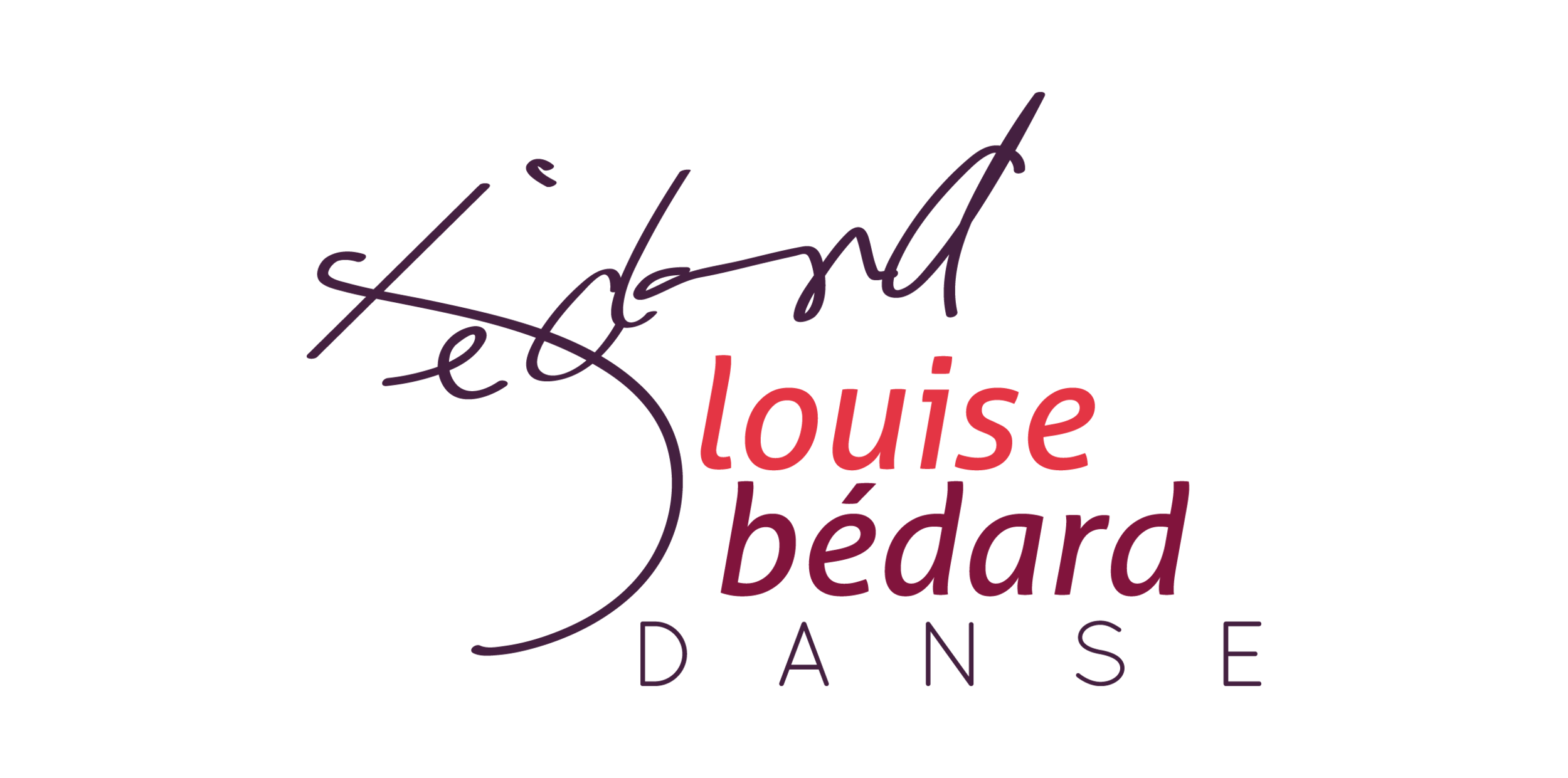ELLES
I see through my fingertips
What my eyes touch : shadows, the world.
Octavio Paz
Poster of the show
Elles reflected Louise Bédard’s desire to be inspired by the artistic works of women from different cultural communities of the 1920-50s. This Louise Bédard Danse creation was the first chapter of Itinéraires multiples, a project spanning several years and representing the continuation of previous pieces, each a choreographic portrait of women: Braise Blanche (1990), Vierge Noire (1993) and Cartes postales de Chimère (1996).
Elles expressed Louise Bédard’s need to nourish and impregnate herself with foreign culture. With this creation, the choreographer took an inspired look at the work of creative women, and more particularly, that of photographer Tina Modotti. Louise Bédard payed homage to this remarkable artist whose magnificent work immortalized Mexico of the 1920s. More specifically, it was the social, political and artistic issues she defended through her work which caught Louise Bédard’s attention. Drawn by Modotti’s work, the choreographer aimed to create a piece inspired by the sensations and images that Tina Modotti’s photographs evoked in her, as well as by the photographer’s intriguing trajectory, era and adopted country.
Essentially, I wanted to use movement to bear witness to all the women artists who have for so long nourished my imagination. Each is a voice inside me, there in the intermingling of movements of this dance. But one of them, Tina Modotti, the Italian-born photographer who immortalized Mexico of the 1920s, stood out from the rest. This artist evoked in me a flood of images, which is how she became my inspiration as I travelled along the path that led to this work. Elles is a dance of reflection, of perception forever changed by men and women and by objects and worlds etched into the ultra-sensitive film of a photographer whose own journey was nothing less than remarkable. Elles, in its own humble way, echoes this exceptional woman’s artistic, social and political commitment.
These two women who appear before you tonight are intimate accomplices in this vertiginous plunge into the stirring universe of Tina Modotti. In this hybridized dialogue between dance and photography, between the two dancers and an artist from a foreign culture, bodies are pulled into motion that is sometimes explosive, sometimes restrained, oscillating between the subtlety and the excessiveness of movement. The choreography is read like a book of short stories, with one story followed by another in an uninterrupted series of danced images.
Louise Bédard



ARTISTIC CREDITS
Year of creation : 2002
Running time : 75 minutes
Choreography : Louise Bédard
Performers : Louise Bédard and Sophie Corriveau
Artistic advice : Ginelle Chagnon
Film : Pierre Hébert
Music : Ana Lara
Remix and additional music : Michel F. Côté
Costumes and make up : Angelo Barsetti
Lighting : Sonoyo Nishikawa
Photography : Angelo Barsetti
VENUES
Théâtre La Chapelle, Théâtre Centennial, Théâtre Hector-Charland, Dancers’ Studio West, The Firehall Arts Centre, Milano Oltre Festival, Festival Cultural Barrio Antiguo, Voilà Québec au Mexique, Brian Webb Danse Company, Arts de la scène de Montmagny
In parallel, the company presented an exhibition of some of Tina Modotti’s works. Organized by curator Lucie Bureau, this photo exhibit took place at the Maison de la culture du Plateau Mont-Royal from November 8 to December 8, 2002.
REVIEWS
The interpretation is remarkable, amazing. Seeing Louise Bédard dance is always deeply moving, and here, she is intense, fluid, strong, precise and meticulous
Aline Apostolska, La Presse, Montréal - November 2002
Bédard and Corriveau have stage chemistry and their skill as dancers – they are beautiful adept at precise, supple movement – fits the choreographer’s compositional beat.
Philip Szporer, Hour, Montréal - November 2002
Louise Bédard has an extraordinaire ability to generate movement that plunges the spectator into the depths of the unconscious, into that nebulous mass of fear, gaiety, fantasy and conflict.
Frédérique Doyon, Le Devoir, Montréal - November 2002

